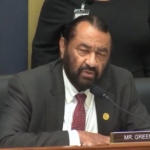By Gifford Briggs, Gulf Coast Region Director, American Petroleum Institute (API)
At a time when millions of Americans are concerned about global energy independence and what that means for the economy and national security, Texas is seeking approval from the federal government on a process that would take lower-carbon energy in the Lone Star State to the next level, benefitting Texans and American consumers alike.
Texas is well-established as the nation’s largest energy-producing state. With more than 586,690 miles of oil and gas pipeline, the state accounts for 43% of the nation’s crude oil and 25% of its natural gas production. The industry is also a major economic driver, supporting more than 2.45 million jobs, over $235 billion in wages, and contributing more than $454 billion to the Texas economy alone.
In addition to these existing bona fides, there is an exciting opportunity on the horizon that will support Texas’ goals to continue producing lower-carbon energy and help secure its energy future. Through a process known as “primacy,” the Railroad Commission of Texas (RRC) is currently seeking federal approval from the U.S. Environmental Protection Agency (EPA) to more efficiently issue permits for infrastructure and activities related to carbon capture and storage (CCS).
For those unfamiliar, CCS technologies are an important part of the oil and gas industry’s mission to achieve a lower-carbon energy future. They work by capturing the carbon dioxide (CO2) emissions produced from electricity generation and industrial processes, preventing CO2 from entering the earth’s atmosphere and reducing emissions without shutting down critical operations. In other words, CCS reduces our carbon footprint and helps protect our environment while bolstering our ability to meet the increasing demand for lower-carbon, American-produced energy.
As the demand for lower-carbon energy products grows nationally and globally, securing primacy for carbon storage will bring decisions about what is best for our energy future from DC to Texas, where the regulators are closer to the people, our businesses and environment. Primacy would empower Texas officials to more efficiently issue permits for projects and activities while protecting our natural resources, creating a ripple effect throughout the economy by attracting new investments for the construction of new storage sites and pipelines, leading to potential job creation and greater availability of lower-carbon energy products.
To be clear, Texas has been able to secure permits for carbon storage projects from the EPA to date, and as an industry, we appreciate our ongoing partnership with federal officials. However, Texas regulators know our state and know our industry better than anyone else. Securing primacy from the EPA will ensure that the permitting agency that understands Texas geology and Texans the best is the one that is making the decisions on who can operate in the Lone Star State.
Texans have made their voices heard on this issue and submitted public comments to the EPA calling for approval on primacy. As stated by one local small business owner, “Opening up opportunities for the oil and gas industry to continue thriving in Texas will significantly impact our entire economy, including small businesses like mine. Primacy would undoubtedly help Texas continue to lead the way in innovation and propel our economy even higher. Primacy will remove the oftentimes unnecessary federal red tape that slows progress and efficiency, and ultimately costs everyone more money in overhead.”
Simply put, primacy offers possibilities for all Texans. From our economic well-being to our environmental health and safety, Texans know Texas best and should be in charge of their own energy future.












